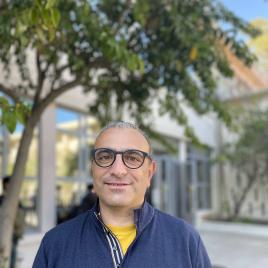Abstract
Health inequalities are determined by several socioeconomic factors, such as geographic location, gender, ethnicity or employment status. These disparities have a marked influence in access to care and patient outcomes across different demographic groups. While the use of artificial intelligence (AI) in health sector is rapidly expanding, it represents a promising tool in reducing inequalities, namely in low-resource settings.
AI algorithms can process large datasets, including medical records, and laboratory results, predicting disease outbreaks, identifying individuals at risk, and allocating resources more effectively. Such insights can facilitate the implementation of targeted interventions and improve access to care for marginalized populations, particularly those living in remote areas. At the same time, in overburdened healthcare systems, AI applications can assist with the management of patient flow and automate repetitive tasks, thereby allowing healthcare professionals to focus on patient care.
Despite the considerable benefits of AI applications in healthcare, several challenges must be addressed. The collection, storage, use, and sharing of both individual and population data give rise to significant ethical issues related to consent, ownership, privacy and access. Because most AI applications are trained using unrepresentative datasets, they may be discriminatory towards minorities or more vulnerable populations. Concurrently, it is of the utmost importance that the data used to train AI systems are inclusive and representative of diverse populations to avoid perpetuating existing biases in healthcare delivery. Therefore, an appropriate core set of ethical principles and legislative framework should be established when designing and implementing AI in healthcare.
Biographic note
Carlos Lemos is a Medical Doctor Specialist in Clinical Pathology. He has a postgraduate degree in Advanced Teaching Skills by Harvard University. He works as Hospital Assistant at the Clinical Pathology Department of the Health Local Unit of Santa Maria, in Lisbon. He is Invited Assistant of Laboratory Medicine at the Faculty of Medicine of Lisbon University, where he lectures on Clinical Chemistry Molecular Biology. He is a member of the Advisory Board for the History of Medicine of the Portuguese Medical Association. He has authored several papers on Clinical Chemistry, Bioethics and History of Medicine.
Faculty of Medicine of the University of Lisbon
carlos_mlemos@hotmail.com


